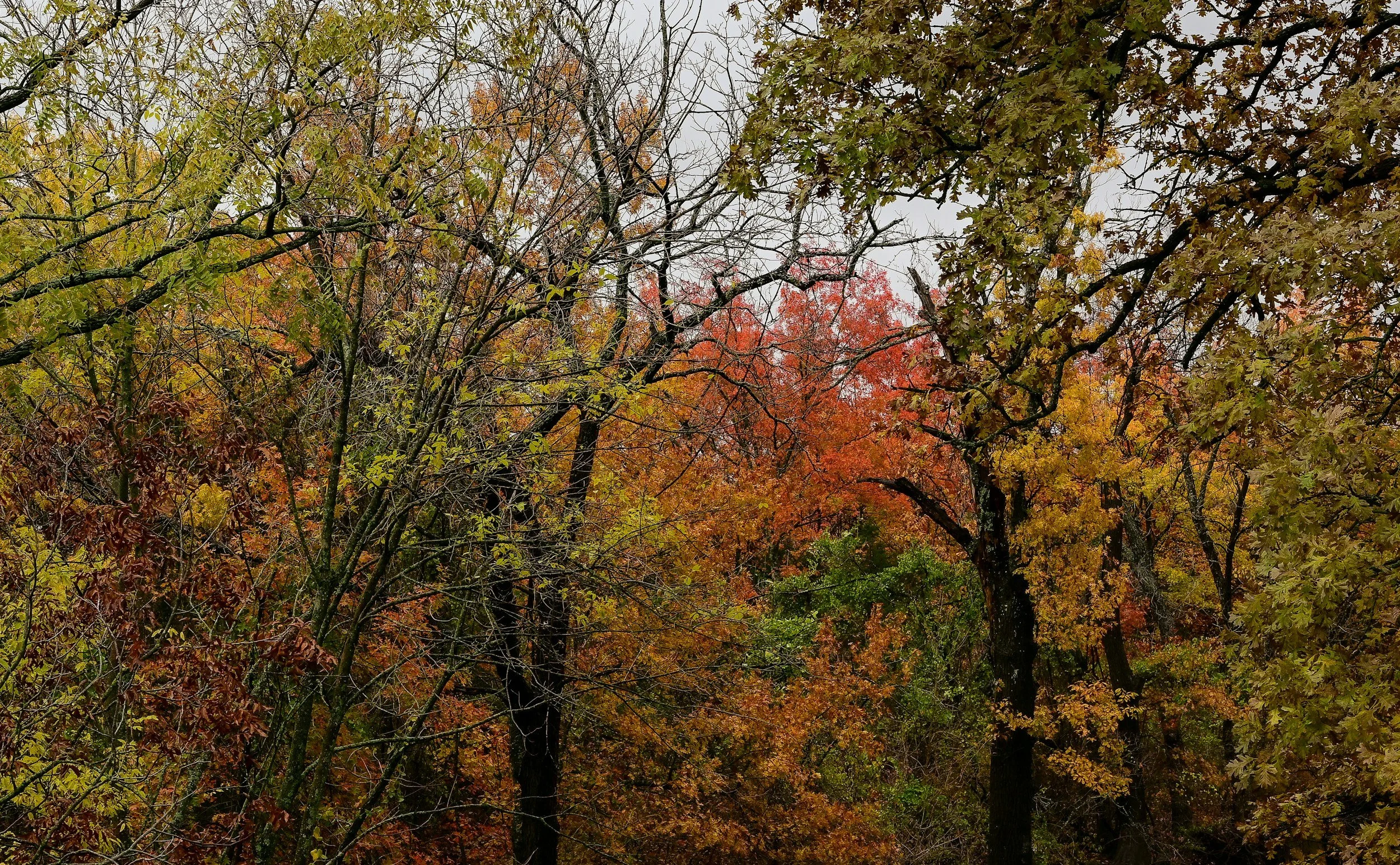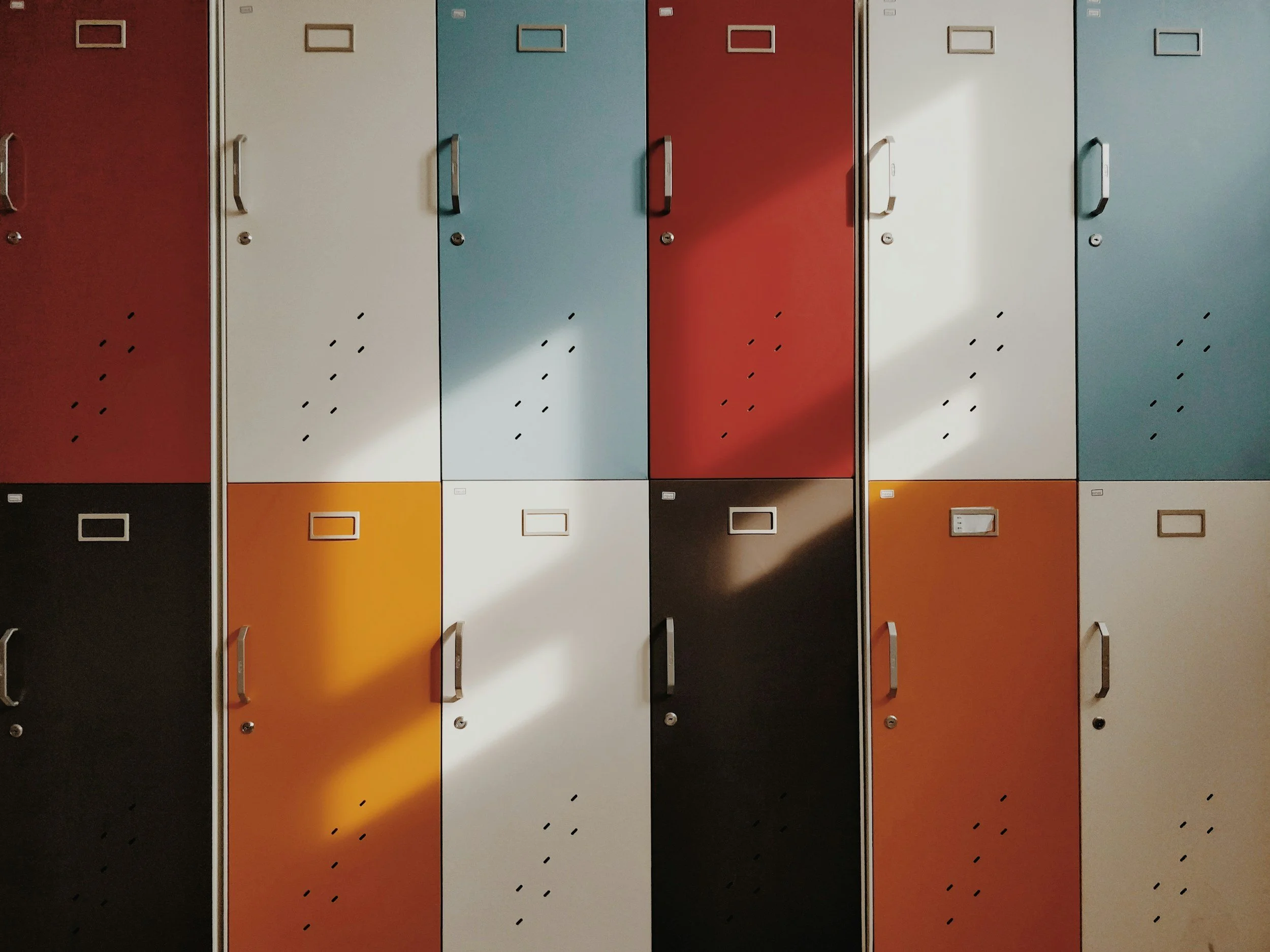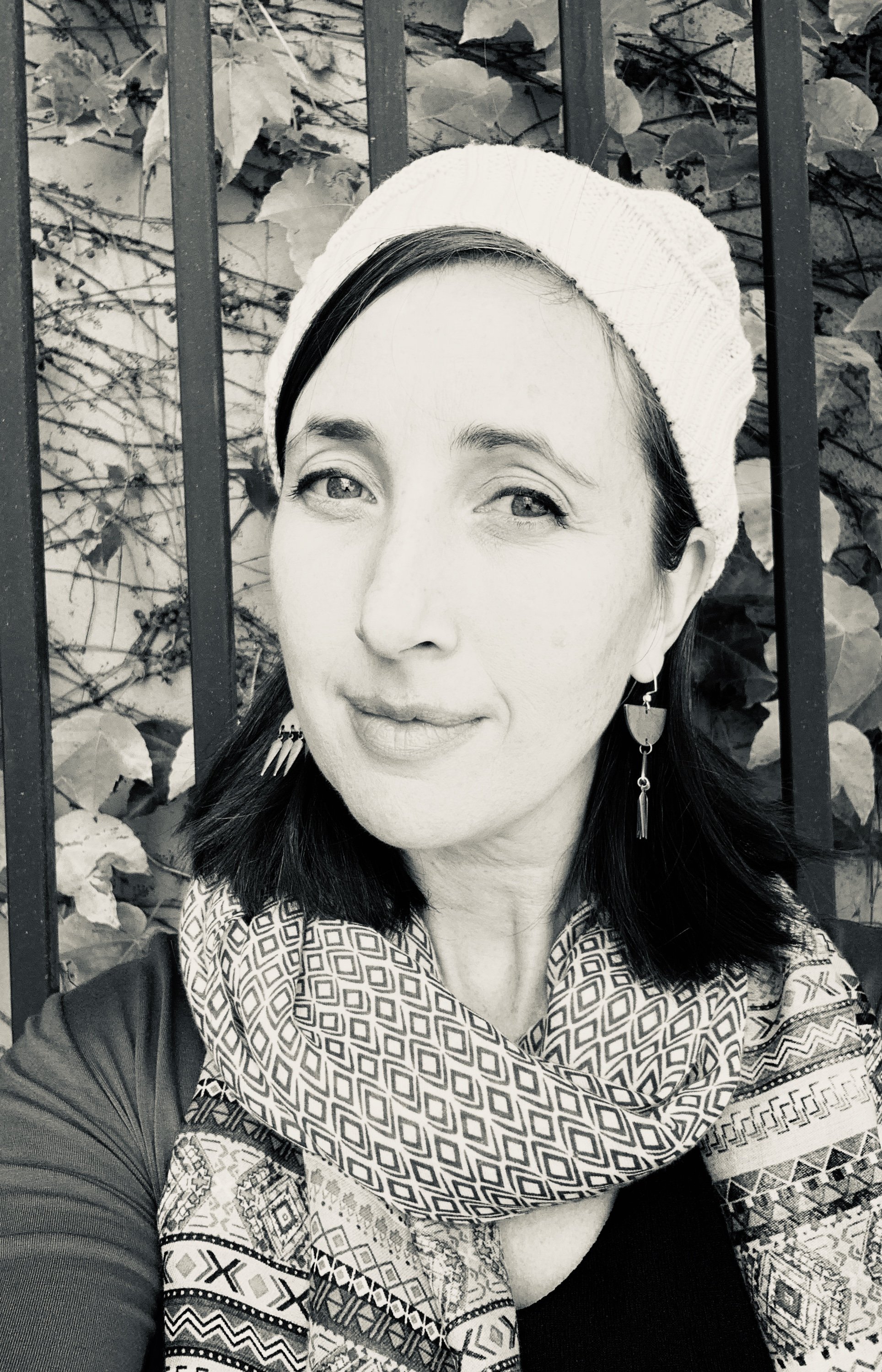Heart/Beat
It was supposed to be a fun weekend. Just a quick overnight from Oakland to Los Angeles. A visit with Joe’s family that would double as a celebration of my forty-first birthday. My boys, Max and Leo, then seven and four, would be with their dad for the weekend. Things were still a little iffy on their dad’s end, with only six months sobriety under his belt, but they’d all be at his parents’ home. The boys would be safe under their grandparents’ watch.
As Joe and I boarded the plane, I stowed my carry-on and my lingering worries over the boys’ dad and exhaled for what felt like the first time in months. At the start of the year, my soon-to-be ex-husband’s vodka-infused spiral reached its crescendo with a near death experience, a two-week hospitalization, and a stint in rehab. Along with the usual cherry blossom blooms and seasonal allergies, that spring featured a blur of crushing work deadlines, divorce-related to-dos, and a pressing need to erect a kind of emotional scaffolding that might insulate us from the fear and instability the boys’ dad had injected into our orbit.
Summer delivered with it an invitation to slow down and take stock. Max, Leo and I began to resurface, leaving our nest to rejoin the world. On urban treks to the park, we packed sticky peanut butter and jelly sandwiches and treated ourselves to salty potato chips from our neighborhood bodega, the kind I never allowed at home. The boys reveled in my we-can-eat-chips-at-the-park loophole. Comic books littered the picnic blanket and we spread out; me claiming a sunny spot, while the boys gravitated toward strips of shade. I brought plastic stemware and one of the big bottles of San Pellegrino. We clinked glasses, Leo cheering, “we’re fancy!”
Guarding against intrusions from the world outside our bubble, I’d turn off all the notifications on my phone, using it only to capture pictures of my hearts. They laid, tummies down, legs gently swinging as they consumed sandwiches and superhero stories. Part of me must have known I’d need those pictures later, a reminder that in between the grief and worry that would permeate the year, there were precious, peaceful pauses and pockets of joy.
In early July my parents took the boys on a sun-soaked excursion to Lake Tahoe. They sent pictures of my beaming boys with their ice-cream mustaches and their sandy toes. My heart began to settle. The year was half over and with it, I hoped, the worst was behind us. I allowed myself that hope. I allowed my thoughts to wander beyond survival, considering whether our recent hardships had earned us a passport to a life less fraught. And I said yes to a birthday weekend in Los Angeles with Joe, a brief respite from taking care of anyone or anything.
*
In the two years we’d been dating, Joe and I traversed a rocky road. His impending divorce. My impending divorce. His change in jobs that took him from Sacramento to San Francisco, limiting our time together to weekends. My clunky attempts to navigate a new relationship, while parenting two young boys as a single mom.
Our story was hardly the stuff of fairytales. It was, instead, the love story of weathered adults. Two people who’d lived a lot and who’d lost a lot, with the battle scars to prove it. Getting together with someone new during a time of great transition is probably the kind of thing relationship experts warn people about, and for good reason.
The tumult of Joe’s former marriage cost us a couple of false starts early on. He started off doubting everything, especially himself. His doubts bred doubt in me. I didn’t introduce him to my boys for the first year. He ran hot and cold in the early days, and my babies needed warm water. The kind that would neither shock their systems with its frigidity nor leave them burned.
I made it clear from the beginning: my boys and I were a package deal. Over the course of year two, after Joe had entered the boys’ lives, I watched him work to earn their trust, to engage with them over pancake breakfasts and greasy pizza nights. Piggyback rides to the park and wrestling matches on the floor endeared him to them, which, in turn, endeared him further to me. By that summer, I believed Joe and I would make a real go of it. A fresh start for all of us. Together.
*
On the eve of our trip to L.A., we steep ourselves in romance over dinner at the trendy Berkeley bistro down the street from Joe’s flat. Sitting on the bench beside each other, because across the table felt too far apart. A Manhattan for me, a non-alcoholic beer for him. Sharing perfectly pink salmon and tender handmade pasta. Indulging in a sticky chocolate torte, complete with a birthday candle. The card that proclaimed his love for me, for the rest of his life. The walk back to his place. Staying up too late, caught up in each other, talking about forever. The next morning came quick, and we piled ourselves into an Uber and headed to the airport.
An hour after we arrive at his family’s North Hollywood home, as his niece and I chat at one end of the room while her toddlers play at our feet, I half-watch Joe, who sits on the carpet at the far end of the room, stretching out after the plane ride. And then it happens. He just slumps over. I bolt across the room and turn him face up. He is purple. Cyanotic. “Call 911,” I yell. His niece calls. I cradle Joe’s head while she starts CPR.
The paramedics arrive quickly. There is a flurry of activity, which is oddly blurred for me now. My memory sharpens as they load Joe into the ambulance, and me after. I send furious texts to my parents and my sons’ father, while I still have the presence of mind to do so. “On way to hospital with Joe – think he’s having a heart attack. May need help with the boys. Be in touch.” The responses are immediate and reassuring; they will stand by.
We arrive at the hospital, Saint Joseph’s. It’s his name. Is that a good sign, I wonder? I decide in that moment that I am someone who believes in signs and that this means something. He will be safe here, I tell myself. This will be okay, I tell myself. But as I jog alongside the gurney, I hear my voice, frantic, “Don’t leave me - - you can’t leave me. I just found you.”
One of the paramedics wheels Joe into an emergency exam room. The swirl of people in scrubs and white coats make no objection to my being there, so I stay. “It’s happening already” I hear Joe say, his eyes darting around the room in panic. He’s saying it to me. Even in the chaos I immediately understand what he means.
*
This is what he’s been worried about from the beginning. Our twenty-year age difference so bothered Joe in our beginning that he broke up with me over it. “I’ll never get over the age difference,” he said, sitting across from me on the park grass. A month later, he wanted to try again. “I’ve been wandering around for a month and life feels empty without you.” My heart heavy with reservations, I agreed to try again.
Now, almost two years later, my heart was a different kind of heavy. We’d worked past hang-ups about age differences, job changes, long-distance romance, both of our pending divorces. We were finally seeing a light at the end of a long, dark tunnel. Still, I knew he worried about what a future would look like for us as he aged.
He hated and feared the idea of being a burden to me if/ when his health declined. Joe was staunchly in the “when” camp; while I presided over camp “if.” I put far less stock in the actuary table approach of predicting our future, as happens when the people around you die young and/or suddenly over and over again. As far as I was concerned, I was as likely to get sick or die as he was. Still, here we were. Joe in the emergency room, his heart part ally, part betrayer. Trying its hardest to prove him right, by killing him.
As the nurses and doctors busied around Joe, giant scissors cutting his lilac polo shirt down the middle, getting updated vitals, hooking him up to IVs, I hugged the alabaster wall. He started shaking and I heard a sound bubbling up from within. I moved toward him, instinctively, as he started vomiting. “Hold his head sideways!” someone barked at me. I grabbed his head, turning it swiftly. Vomit and bile poured down the side of the gurney. Oh, God, it’s like Hendrix. If Joe was alone – like Hendrix - would he already be dead?
My knees started to buckle. Someone noticed and ushered me outside the room to a bench, where a paler than usual version of me crumpled. I watched as they wheeled Joe out of the room, away into the cavernous hall. A bespectacled middle-aged woman with “Chaplain” on her lapel was beside me now, asking if there was anything she could do for me. “No, thank you” is what I said out loud. Inside I screamed: Get away from me! Chaplains are for the dead and dying -you’re going to jinx him!
*
But she didn’t jinx him. Thanks to the fast-acting paramedics, a swift stent procedure that reconnected a severed artery, the vigilance of the ICU doctors and nurses, and two weeks of recuperation at home, Joe survived his broken heart. But four years later, our relationship stills bears its scars.
In the first days following his heart attack, Joe declared he’d had a wake-up call. He could finally quit his job! Play the piano again! We would buy a house and make it our own. We would travel to beautiful, faraway places and spend whatever time he had left, building a life together. He could trade doing, for being. He’d been given a second chance. I was his second chance.
A couple of weeks later, though, with Joe back at work, and returning to his routines, the pendulum swung back. Hard. When people asked him how he was doing “you know, since that heart attack?” I’d hear him quip, “Fine – like it never happened.”
But it did happen. Still, the would-be shared experience has become, instead, a dividing line. My need to process, to extract meaning from what happened, butting up against his need to forget, to distance himself from it, from me. The reality of his mortality remains the proverbial elephant in the room. Meanwhile, Joe’s piano continues to sit in off-site storage, leaving a very real, gaping space in our living room. Were he to bring it home, Joe could revive the instrument and maybe, in so doing, the piano could return the favor. Instead, the bay window bathes the open floor in sunlight, shining a spotlight on all that is missing.
For Joe, the experience of coming so close to dying, seems buried under the rubble of busy-work and familiar routines. He either cannot access it, or he doesn’t want to. Or maybe it’s both.
For me, the one with front row seats to the event and its aftermath, the excruciating details hover just below the surface of our day to day lives. The slightest thing, a trigger causing them to rise to the top. Had I not been in the room when it happened, had he not gotten to the hospital as quickly as he did, he surely would have died. I close my eyes and the memories rush in.
I flash on the first night in the ICU when I stayed awake the entire night, watching the monitors. My eyes stinging, staring at the blinking lights that told me his heart was beating, his lungs were pumping. The first night back at his brother’s home after he was discharged, when I stayed awake the entire night because there were no monitors. Watching the rising and falling of his chest, listening for his soft breath. Our first night apart, when he was back in the Bay Area and I in Sacramento, when I stayed awake all night because there were no monitors and no me in the room, should his heart stop again. My cell phone inches from my face, in case he called. In case of I don’t know what.
*
These days it rarely comes up in conversation. But recently, a friend of Joe’s died. Of a heart attack. At the same age as when Joe had his. His girlfriend found him right after; still warm. His head on the kitchen table. Because she wasn’t in the room when it happened there was no one there to sound the alarms, to call 911. I search Joe’s eyes when he tells me about his friend’s fate, waiting for him to connect the dots, wishing we could share something of the experience, but he’s just reporting the news of the day. It has nothing to do with us.
Four-and-a-half years later, the stent continues to keep Joe’s heart beating and we’ve assembled at least part of the life we imagined, gluing it together with a patchwork of promises and good intentions. I hope it holds.
-Lindsay Bennett
Lindsay Bennett is a human rights lawyer and freelance writer. Lindsay’s lawyer work focuses on a range of social justice issues. As a writer, Lindsay focuses mostly on personal essays and opinion pieces. She and her two sons live in Northern California with their beloved Australian shepherd and a bunny named Pedro.







